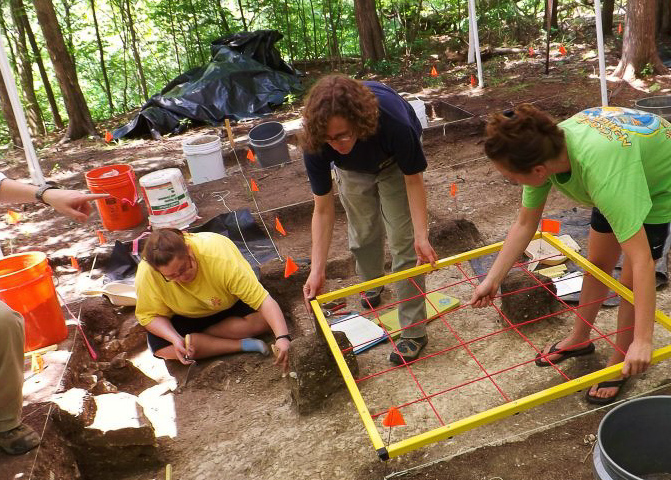Research
Fort Tombecbe: Alabama’s last Colonial outpost
Standing on a wooded, white limestone bluff above the Tombigbee River, Dr. Ashley Dumas is telling a story.
“Imagine this: it’s the early 1700s, and you are a young French soldier stationed to a remote outpost completely surrounded by the Choctaw Nation. The French, the English, and the Spanish all compete for control of the New World and the vast resources available. Perhaps nowhere on the continent do those three military powers come so close together as right here — at Fort Tombecbe.”
The French built Fort Tombecbe beginning in 1736 to protect their settlements in Louisiana, and to prevent the English from expanding their base from the east.

“It’s easy to believe that Fort Tombecbe was a hardship tour. The French army poled all of their men and supplies upriver from Mobile on boats. The heat. The hostile nature of frontier life, never knowing for sure if your neighbors wanted to trade with you or destroy you. Standing here, on this bluff, it’s almost like you have one foot in history. For me, for our students, that’s maybe the most exciting part of this site. You feel the connection to the past in a very real way.”
Today, UWA owns the Fort Tombecbe site and more than 23 acres surrounding it. It’s an active archeological dig that gives students in archeology, anthropology, even biology, hands-on experience in the field.
Dr. Dumas was originally hired to manage the Fort Tombecbe site and her work with students is some of the most exciting work on the UWA campus.
“We have a lot of historical documents, maps, drawings, letters, journals — from the European occupations of the fort. Through those documents, we get an idea of life in a frontier outpost, their military goals, their relationships with the Choctaw. We have a good sense of the history, of the people who lived in this garrison. But the story isn’t complete.
“This was a hard post. These soldiers were living off the land. Imagine standing here on this bluff in your wool uniform in the heat of summer. The official records rarely document everyday life. They offer only one point of view of the complex relationships between the various armies and the native tribes. We fill in the holes to the documented story through careful archeological excavation of the site. The Fort is important to UWA because it makes all of the theory, all of the reading, all of the events and people that make up the past — it makes everything real for our students.”
If you are interested in learning more about Fort Tombecbe, check out the official site.
